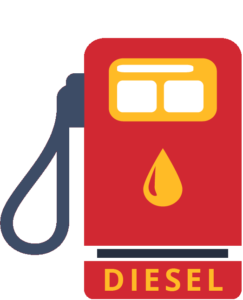Isaac Instruments had two impending milestones to celebrate this year when it brought together customers and other guests at its annual user conference – 25 years in business and 10 years focused exclusively on the trucking industry. Both will come in 2024.
The telematics company got its start in 1999, supplying telemetry for race teams and later for passenger car OEMs. But in 2014 it chose to focus exclusively on the trucking industry, beginning with a single fleet in Quebec and expanding to covering more than 500 fleets and more than 50,000 Class 8 trucks in North America today.

The in-cab tablet vs. BYOD
Jacques DeLarochelliere, co-founder and CEO of the company, walked user conference attendees through the company’s journey, highlighting some of the key decisions made along the way. One of the biggest was to develop its own rugged in-cab tablet, shunning the popular bring-your-own-device (BYOD) trend that was common at the time.
“BYOD was going to be a nightmare in trucking. That’s what we thought 20 years ago,” DeLarochelliere said. The company was focused on delivering the best possible user experience, and took some cues from Apple, which also provides its own well integrated software and hardware.
“Isaac does the same,” said DeLarochelliere, noting the tablet had to be designed for the truck environment. “An iPad wouldn’t last long in a truck, we needed something built for trucking.”
That extended to include the belt clip, pouch and cradle – all were designed by Isaac to survive a harsh trucking environment. It was a lesson learned the hard way when it came to the cradle, which was initially provided by a third party and encountered durability problems in 2015.
“We jumped in and designed our own cradle,” DeLarochelliere recalled. “Now we have one that is rock solid and bulletproof.”
The tablet was also designed to be easy to use, with minimal screen taps or mouse clicks required. Isaac opted to use the Android operating system and WiFi connection. But the tablet was twice the cost of a phone, which meant it took some effort to convince fleets it was the way to go. Some of the issues related to BYOD telematics included: different cradles in different vehicles; a greater likelihood of distraction; new operating system updates that may not be compatible; cybersecurity risks; and loss of productivity when the phone competes for the driver’s attention with other apps and distractions.
“As much as our rugged tablet was two times the price of a phone 10 years ago, it has dropped in price by half while phones have doubled in price,” DeLarochelliere said. “The incentive [for BYOD] is not there anymore.”
Emerging trends in trucking
Looking ahead, Isaac Instruments is already planning for emerging trends, including electric vehicles. It is also prepared for the day OEMs provide trucks with suitable in-cab rugged tablets of their own. “As soon as we can integrate that, we will have it well integrated into our platform,” DeLarochelliere said.
And it’s now diving into the world of artificial intelligence, giving fleets more tools they can use to manage their businesses based on the tremendous volumes of data their trucks generate.
“We’ve been waiting for AI,” DeLarochelliere said.
So too does it continue to take the most extreme measures possible to protect against cyberattacks and outages. Last week, DeLarochelliere admitted, Isaac experienced a brief outage, but not a single customer noticed.
“We figured it out, no leak, no data loss — nothing. Not a single driver saw a difference. That’s the sort of outage we like,” he said.
He also pointed out to customers that they can take comfort in Isaac’s financial health. Unlike other tech companies it’s not venture capital-backed, he said. “Isaac has always been healthy, built brick by brick just like a trucking company.”











